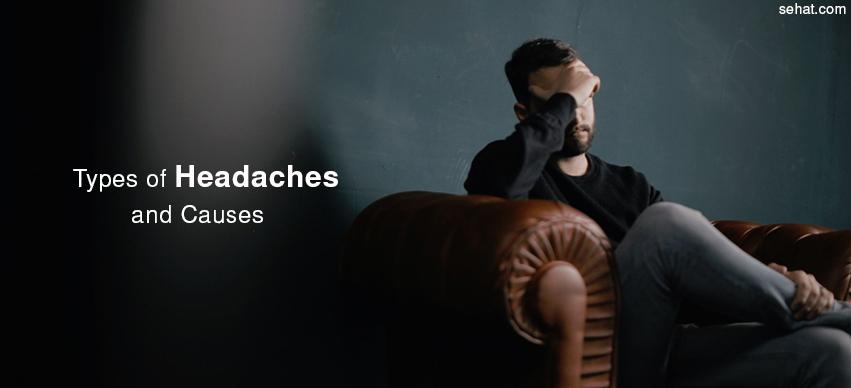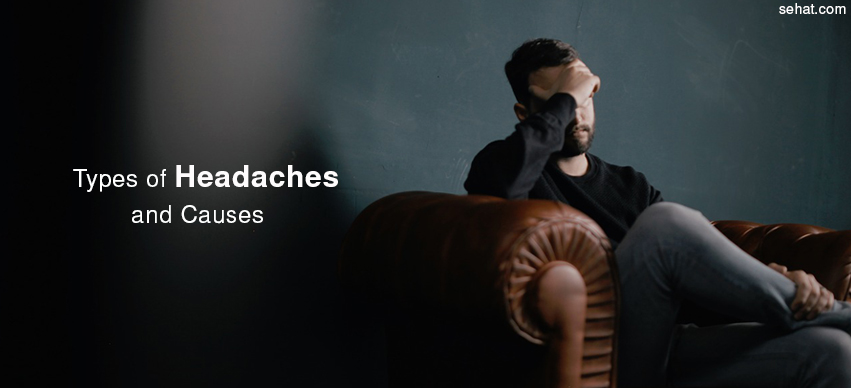
Some physical conditions may or may not be categorized as ailments and we often tend to overlook them. However, some of these conditions should not be overlooked and doing so can lead to moderate to serious health complications. One such example is headaches. There are various types of headaches. Some resolve without medical intervention while some other types can be indicative of serious health complications. It is important that you learn about various types of headaches and causes.
Major Headache Types you Need to Learn about
Below listed are the different types of headaches you should be aware of. This will help you figure out the root issue and take remedial measures.
Tension/Stress Caused Headaches
These are the most commonplace type of headaches found in teens and adults. These may lead to mild or moderate pain and reasons may be mental stress caused by factors like career or personal life. These usually do not need medical intervention. These can be relieved with rest, relaxation and home remedies.
Migraine
This is one of the headaches that can literally make you feel like hell! Migraine headaches lead to intense pain. The throbbing pain is characterized by headache back of the head or at other parts of the head. These can persist for a few days and recur. When you are affected by this type of headache symptoms like light or smell sensitivity can also take place. Some people also complain of blurred vision and fever.
Cluster Headaches
These headaches may lead to a feeling of piercing pain around or behind the eye region. While it is not very common, the pain can be of severe type. You may feel nostrils to be stuffy or running nose may also be there. These headaches may recur after disappearing totally and may attack several times a day. In this headache, you will not feel like lying on bed and restlessness will prevail. The root cause of it remains unknown but some hereditary roots can be there. While a cure is not there- it can be reduced with medications.
Sinus Headaches
These headaches take place in the cavities named sinuses. You would feel pain in the cheekbones, nose, and forehead. Sinus symptoms like fever, runny nose and swelling in parts of face accompany this type of headache. Headaches caused by a sinus infection are treated mostly with antibiotics and antihistamines.
Hormone-Induced Headache
These headaches are found mostly in women. When hormonal levels change in the female body- these headaches occur. These are common during pregnancy and menopause. However, these do not tend to be long-lasting or severe in nature.
Secondary Headaches
Sometimes, a headache may occur as a sign of some underlying ailment. These ailments and root causes may include swelling within the brain, head trauma, neck injury, transient ischemic attack, Carotid artery inflammation, etc. Hypertension in excess may also lead to headaches in some individuals.
Medication-Induced Headaches
Sometimes, you can experience headaches when the root cause is the specific medication used by you for treating specific medical conditions. Some medications using which may lead to the onset of headaches are erectile dysfunction drugs, Oral contraceptives, cardiac medications, etc. The excessive usage of some medications can also lead to headaches. Also called rebound headaches, these are caused by excess usages of over-the-counter drugs like acetaminophen, aspirin, and ibuprofen.
Thunderclap Headache
A thunderclap headache, also called lone acute severe headache is deemed as the most painful type of headache. These headaches may last for a small amount of time but the pain can be quite excruciating. It may lead to the onset of medical problems like subarachnoid hemorrhage.
Major Causes of Headaches
It is important to know how do you get headaches. This will help you figure out the apt remedy.
Environmental Factors
Sometimes, the root cause of the headache can be one or more than one environmental factor. For some people it can be strong smells they are allergic to. Sometimes, allergy from foods can also lead to its onset. Exposure to carbon monoxide can also trigger a headache in some people.
Ailments
In a majority of cases, headaches occur as symptoms of ailments or as a precursor of disease. There are plenty of conditions that lead to the onset of headaches. Examples include sinusitis, ear infection, throat infection, etc.
Stress
Stress caused by myriad factors often disrupts your sleeping and eating cycle. This can lead to a headache on top of the head or backside.
Genetic Roots
Some types of headaches have roots in heredity. Those who have a family history of migraine are more likely to get affected by it than others. However, the root cause of migraine is still not clear. If both of the parents have it in the family tree, chances are high the kid will develop it.
Medication Withdrawal
Sometimes, you may develop a headache when you stop using a pain relieving medication after using it for a long time. Your body develops a dependence on it and it acts like withdrawal syndrome.
Specific Ailments
Some ailments often trigger headache along with other perceptible symptoms. For example, headaches with vomiting and pain in the yes indicate glaucoma. Headache with neck stiffness, light sensitivity may indicate meningitis. Both are deemed as medical emergencies and unless preventive measures are adopted, results can be results.
When to Seek Medical Intervention?
If you know basics on the types of headaches and causes you will be able to understand how to react to these. Botulinum toxin was a recently recommended prophylaxis treatment for migraine. Know how you can treat migraines by using botox. You have to analyze the intensity, location of a headache and look for accompanying symptoms and physical conditions. Stress-induced headaches do not need medication and the same is true for most cases of hormonal headaches. However, severe types like sinus and migraine headaches need medical intervention. If the additional symptoms indicate underlying illness, seek medical help without any delay. If the headache recurs and does not subside within a few days, contact a doctor rather than resorting to any self-medication.

